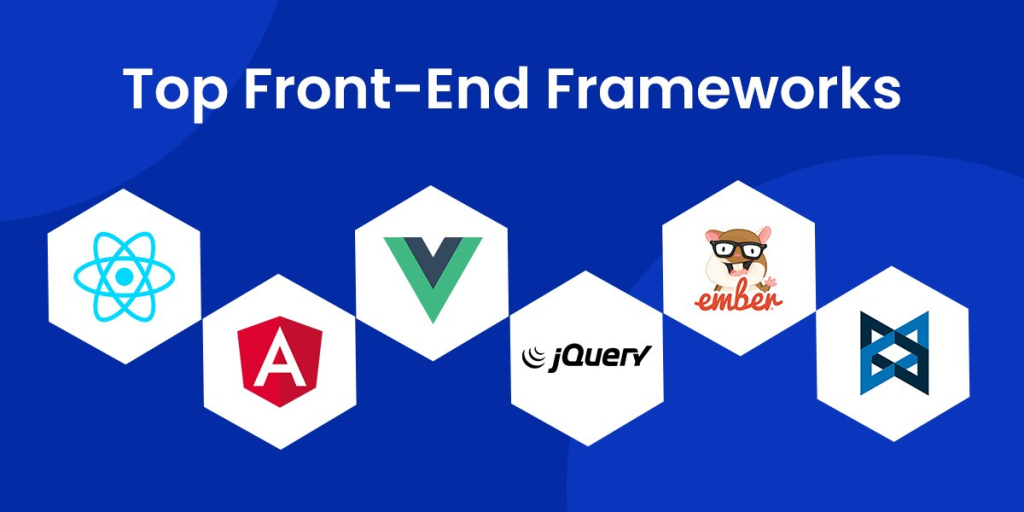
The landscape of frontend development frameworks continues to evolve, with established players maintaining their dominance while newer contenders gain traction. Here’s an overview of some of the most popular frameworks in 2024:
Top Frameworks:
- React:
- Released in 2013 by Facebook, React remains the most widely used and highly regarded framework.
- Its component-based architecture forwords code reusability and maintainability.
- A vast ecosystem of libraries and tools exists, making it a versatile choice for a wide range of applications.
- Angular:
- Developed by Google, Angular is a mature framework known for its robustness and scalability.
- It utilizes TypeScript, providing type safety and better code structure.
- Angular excels in building large-scale enterprise applications due to its comprehensive features and well-defined structure.
- Vue.js:
- This progressive framework emphasizes simplicity and flexibility.
- Vue.js offers an intuitive API and a smaller learning curve, making it beginner-friendly.
- It balances ease of use with powerful features, attracting developers seeking efficiency and performance.
- Next.js:
- Built on top of React, Next.js is a server-rendered framework known for its performance optimization and SEO benefits.
- It simplifies routing, data fetching, and code splitting, making it ideal for building high-performance web applications.
Emerging Frameworks:
- Svelte: This lightweight framework with a compile-time approach generates highly optimized code.
- Svelte offers fast performance and a smaller bundle size, making it suitable for web applications where performance is crucial.
- Astro: Released in 2020, Astro focuses on incremental static regeneration (ISR) and server-side rendering (SSR) capabilities.
- It aims to combine the speed of static sites with the flexibility of dynamic frameworks.
Factors to Consider When Choosing a Framework:
- Project Requirements: Consider the size, complexity, and performance needs of your project.
- Development Team Expertise: Choose a framework that aligns with the skills and experience of your team.
- Learning Curve: Evaluate the difficulty and time investment required to learn the framework.
- Community and Support: Look for a framework with a large and active community for support and resources.
Choosing the “right” framework depends on your specific context and goals. Research and experimentation are key to finding the best fit for your project.
Latest posts by Rahul Singh (see all)
- Mutual of Omaha: Selection and Interview process, Questions/Answers - April 15, 2024
- AES: Selection and Interview process, Questions/Answers - April 15, 2024
- Amphenol: Selection and Interview process, Questions/Answers - April 15, 2024

